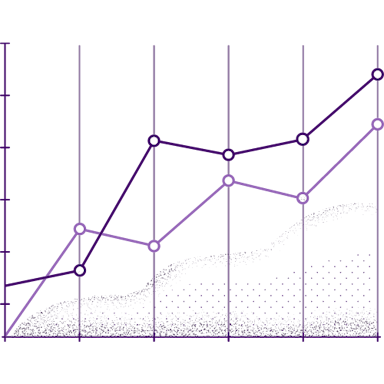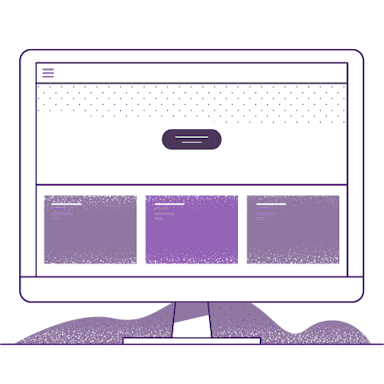Facebook (Meta) Conversions API Integration
Add conversion values to Facebook Ads reports, use performance-based automatic targeting and optimization capabilities to engage your audience and gain deep insights into ad conversions

Add conversion values to Facebook Ads reports, use performance-based automatic targeting and optimization capabilities to engage your audience and gain deep insights into ad conversions

Meta/Facebook Conversions API (also known as the “CAPI”) allows to create custom actions and events and pass them directly from a site’s servers into Facebook for attribution. It is difficult to track conversions reliably using many of the off-the-shelf CAPI integrations, server-side GTM or Facebook's Conversions API Gateway alone: it's not uncommon to see inaccurate statistics - higher or lower conversions numbers in Facebook Ad manager than the actual purchases or conversions figure.
Inaccurate data and unreliable attribution do not only increase Facebook advertising costs and prevent getting a positive ROI from Facebook Ads, but eventually slow down business growth.
Meta/Facebook Conversions API integration by Able CDP fixes all common problems with sending conversions to Facebook Pixel (Meta Pixel) and improves event match quality by combining browser and server-side tracking and attribution, providing a powerful tools to understand how your ad spending drives sales and purchases.
Report on currently missing conversions that happen after browser analytics and tracking cookies expire or on different devices. Able offers built-in tracking to capture Facebook ad click and browser ids, associate them with customer details, store them in its customer data platform. Able Customer Data Platform then attributes conversions to these customers sources using customer identifiers such as email and sends conversions with complete match parameters to a Facebook (Meta) Pixel of Dataset using Facebook Conversions API.
Facebook Conversions API allows you to gain a more accurate picture of your Facebook ads. Use of Facebook Conversions API can improve your CPA by 13% across multiple verticals when setting up the Conversions API with the Meta pixel. It can also increase your lead to sale conversion rate by 20% by showing you which ads are optimized for your customer base. Connecting Able CDP to your Facebook Conversions API will ensure this helpful data is efficiently transferred to other analytics platforms you may be using, allowing for even better analysis of your marketing campaigns and customer journey.
Able Customer Data Platform captures complete journey of each customer, allowing to understand how your customers buy and how segments perform across campaigns even on low volume experimental conversion data while you're still perfecting your pipeline. In addition to providing a built-in user interface to research individual customers' journeys, Able integrates with analytics platforms that don't have a 7-day conversion window limitation such as Google Analytics, allowing to understand and report performance of the campaigns.

Able CDP is an advanced server-side tracking solution that combines browser tracking with server-side API integrations, linking website activity and Facebook Ads click IDs with server-side sales to build a complete journey of each customer across website and back-office tools.

Maximize Facebook ad delivery performance by attributing 99% of sales to the correct ad click and sending them to the Conversions API with Able CDP's advanced attribution. Track full journeys of individual customers from Facebook Ads and obtain data to inform strategy.

Skip complex manual set-up of the connection between Meta/Facebook and other software in your funnel. Able CDP already knows how to track Facebook Ads click IDs, associate sign ups with them, attribute conversions happening elsewhere server-side and send them back to Facebook Ads Conversions API to facilitate platform's AI/ML ad delivery optimization.
Sign up for a free trial account
Install Able CDP tracking code on the website
Connect Able to your e-commerce platform, a payment system, or a CRM or send custom conversions using its REST API
Connect Facebook Ads Conversions API to allow Able to send conversions attributed to the original ad clicks to a Meta Pixel or a Dataset.
Don't see the one you're looking for? Our list of server-side integrations has many more that can be useful.
With the ever-changing landscape of online tracking, it can be difficult to keep up with the latest developments. In this article, we explore how third-party cookies, first-party cookies, and other tracking techniques are used to track and attribute conversions and how browsers are responding to these techniques. We also look at how these techniques are affecting the way advertisers and social media networks are able to reach their audiences.
Learn more →As marketers, we all strive to target that elusive most profitable customer segments with our ad spend. This is where the concept of Customer Lifetime Value (LTV) comes into play. LTV is a crucial metric, providing insights into the total revenue a business can reasonably expect from a single customer account. It considers a customer's revenue value and compares it to the customer's predicted lifespan. By integrating LTV into your Facebook Ad strategy, you can optimize your ad spend and increase ROI. With Able Customer Data Platform (CDP), it's easier than ever to integrate LTV into your Facebook Ad audiences.
Learn more →In the recent years ad platforms such as Facebook Ads (Meta) and Google Ads began to introduce and promote use of the conversion APIs, allowing advertisers to send more details about their conversions. This article describes how conversion APIs work, why their use is essential and how different implementations can affect their performance. It describes common pitfalls why conversion APIs may not have delivered the desired result and documents approaches to fixing this.Facebook's study has shown that correct use of Conversions API results in increase of CPA by 13% and lead to sale conversion rate by 20% on average; the average is misleading as the figure is funnel dependent. Some funnels may already track all conversions correctly without Conversions API. Others may gain up to a 7x RoAS (return on ad spend) increase and doubling number of tracked conversions in other funnels in our experience.
Learn more →Conversions missing from Facebook (Meta) Ads Manager is a common issue that many Facebook advertisers are facing. In this article we try to highlight two most common yet obscure reasons why transactions may be missing from Facebook and offer ways to solve Facebook tracking and attribution.
Learn more →Attributing conversions to Meta (Facebook) Ads is a common task, however doing it with sufficient precision is hard. Sales might happen in a payment system or a CRM, or, when they happen online, customer might not come back to the website, so tracking with Meta Pixel or GTM JavaScript produces substandard results. Able solves this problem with its server-side conversion tracking and Meta (Facebook) Conversions API integration.
Continuously improve marketing strategy with actionable data produced by Able tracking.

Understand how your customers buy and how segments perform across campaigns even on low volume experimental conversion data when you"re still perfecting your pipeline.

Stream back-end conversion data to Google Ads and Facebook Ads Conversion APIs to facilitate ad platforms" AI/ML ad delivery optimization and to create super effective lookalike audiences in real time.

Use standard tools such as Facebook Ads, Google Analytics and your preferred BI and dashboard software to see exact performance and revenue of each channel and landing page even when sales happen weeks after the initial ad click.
Software companies, e-commerce stores and various types of digital businesses around the world are using Able CDP to fundamentally improve their marketing strategy.
Get peace of mind by choosing a provider that can process customer data regardless of where in the world they are located.